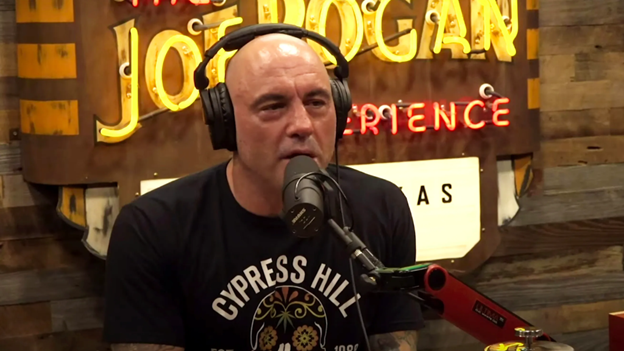Here's where low-return businesses and high-return businesses differ from each other…
| From the desk of Miles Everson: Happy Tuesday! I hope you’re having a great day so far. Today, we’ll talk about another topic through the lens of Return Driven Strategy (RDS). For those of you who don’t know yet, RDS is a pyramid-shaped framework with 11 tenets and 3 foundations. When applied properly, these principles help businesses achieve their organizational objectives. Are you ready to know more about today’s article? Read on below to learn the importance of business strategy in response to forces of change.
|
|
Here's where low-return businesses and high-return businesses differ from each other… What do you think about successful strategic planning: Is it an event or a continual process ? In the book, “Driven,” authors Professor Joel Litman and Dr. Mark L. Frigo state there is a common belief that “strategy” happens at management offsites or management retreats. However, this couldn’t be further from the truth; the effectiveness of strategy is summarized in this quote from a manager: “Who is out there telling people that a day-long management retreat has any lasting value? I’d rather keep working and get something valuable done.” Allow us to share with you an example… There was a firm whose main source of costs came from fuel. When asked why returns were so low, the firm exclaimed: “We didn’t expect oil prices to be so high.” Here’s the thing: Other firms in the same industry were hedging oil prices, and were able to maintain more stable pricing of their offerings and more stable returns. So, where did the first company go wrong? It’s in thinking that successful strategic planning is “not” a continual process. According to Professor Litman and Dr. Frigo, low-return businesses are repeatedly accompanied with a blame-mentality on external elements… and as a result, they suffer the consequences of their poor mindset. Vigilance to Forces of Change You see, various forces of change—shifting demographics, the “Age Wave,” specific events, etc.—impact every company in one way or another. That’s why it’s important for businesses to be vigilant to such forces, as they can only respond to these in two ways: It’s either they capitalize on these forces of change or fall victim to these forces of change . Let’s look at this through tangible examples from some businesses… Johnson & Johnson (J&J) has demonstrated the flexibility to forces of change in its response to immediate events that required action. This company combines focused business-continuity planning with high ethical standards and good communication.
For instance: In 2003, when J&J learned that its anemia drug Procrit had been counterfeited, it quickly rolled out a well-developed crisis plan. The company set a rapid timeframe in which legitimate products would be tested, certified, repackaged, and shipped to customers. See? J&J had a plan for execution for these types of events, as well as the communication and culture. This led management and employees to a swift resolution of the situation! In fact, the J&J Procrit case is consistent with the way the company has confronted a series of business crises—from the Tylenol tampering in 1982, to Zomax, a pain medicine withdrawn from the market in 1983 after patients died from using it, to the counterfeit versions of Procrit in 2003. In each of these situations, J&J executives credited the company’s culture and Credo with guiding their decision making and having a disciplined execution process for getting things done. These showed that while no individual event can be predicted perfectly, the importance of expecting such events and building strategies around them has been important to the J&J’s success. Here’s another example… In March 2000, what initially appeared to be a minor disruption for Nokia and Ericsson turned out to be a critical event for both companies: A lightning bolt struck a semiconductor plant that made chips for both telecom equipment makers!
Both firms received phone calls notifying them of a fire that had ruined key components that were bound for each firm. Managers at Nokia noticed a glitch in the flow of chips even before they were told there was a real problem. What’s more? Nokia managers estimated that the potential impact of the disruption in the supply of chips could translate into an inability to produce four million handsets, representing 5% of the company’s sales. So, the firm quickly worked with the supplier to resource necessary components. When asked about how the issue was brought to the attention of the right people at Nokia, one manager said: “We encourage bad news to travel fast… We don’t want to hide problems.” In this case, we can clearly see that Nokia demonstrated good strategic communication, engagement of employees, and partnering strategy. Additionally, the firm demonstrated knowledge and insight on how to adjust its activities accordingly. At that time, Nokia had demonstrated one of the most impressive cash flow return histories of any company. On the contrary… Ericsson responded slowly and did not have alternative sourcing options. As a result, by the time management realized the extent of the problem, they had nowhere else to turn for several key parts. One manager at Ericsson even said: “We did not have a Plan B.” This was a major factor in Ericsson’s outright exit of the phone headset production market in 2001. — Founding Father of the United States Benjamin Franklin once said: “Drive thy business, or thy business will drive thee.” It’s true. After all, how can you successfully drive the returns of your organization if you cannot see the road ahead? It’s only either you manage your business well, or your business will manage itself poorly AND negatively affect you. We hope you learned new, interesting business strategy and management insights from today’s article! According to Professor Litman and Dr. Frigo, whether by specific events or longer-term trends, business environments change, often dramatically, that require businesses to adjust as well. Time and again, high-return businesses have proven an ability to adjust as necessary to succeed. — If you’re looking to gain a better understanding of Return Driven Strategy and Career Driven Strategy, we highly recommend checking out “Driven” by Professor Litman and Dr. Frigo. Click here to get your copy and learn how this framework can help you in your business strategies and ultimately, in ethically maximizing wealth for your firm. Hope you found this week’s insights interesting and helpful.
Stay tuned for next Tuesday’s Return Driven Strategy! For many years, Steam has been considered as the storefront of choice for gamers looking to get their games digitally. However, this sentiment has slowly changed as the Epic Games Store has solidified itself as a viable alternative ever since its 2018 launch. Learn more about the impact of partnerships in next week’s article! |

Miles Everson
CEO of MBO Partners and former Global Advisory and Consulting CEO at PwC, Everson has worked with many of the world's largest and most prominent organizations, specializing in executive management. He helps companies balance growth, reduce risk, maximize return, and excel in strategic business priorities.
He is a sought-after public speaker and contributor and has been a case study for success from Harvard Business School.
Everson is a Certified Public Accountant, a member of the American Institute of Certified Public Accountants and Minnesota Society of Certified Public Accountants. He graduated from St. Cloud State University with a B.S. in Accounting.




